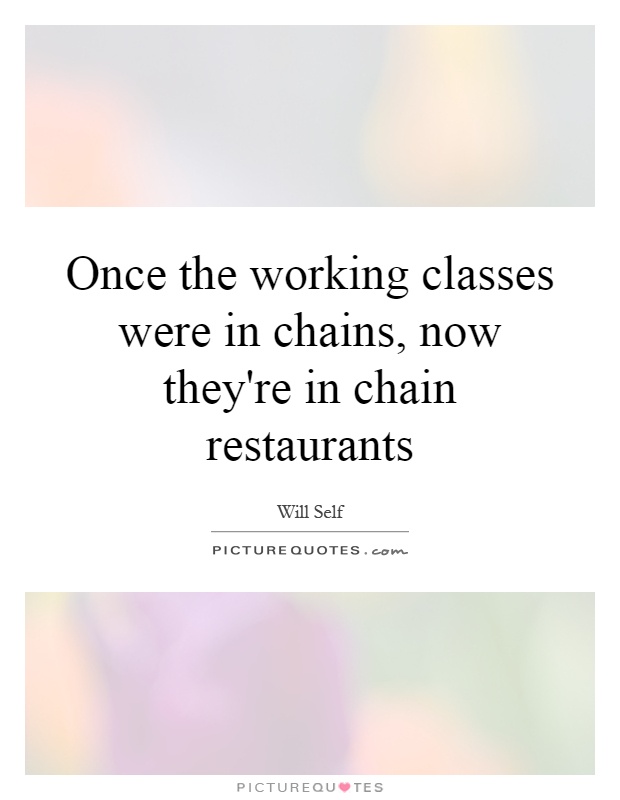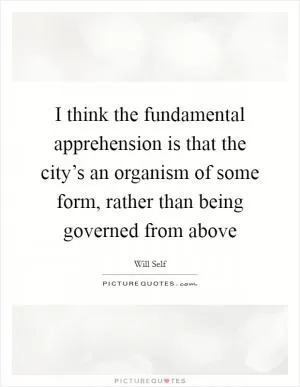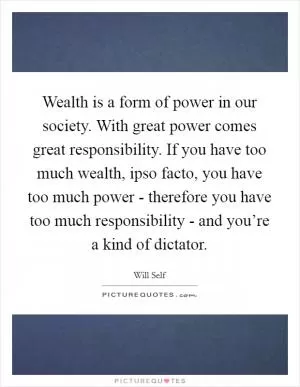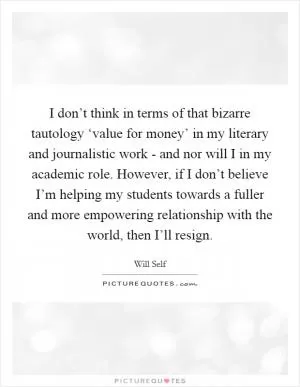Once the working classes were in chains, now they're in chain restaurants

Once the working classes were in chains, now they're in chain restaurants
In the modern world, the working class has undergone a significant transformation. Once oppressed and exploited by the ruling classes, they are now often found working in chain restaurants, serving the very people who once held them in chains. This shift in the working class's role in society is a complex and multifaceted phenomenon that has been explored by writers and thinkers such as Will Self.Self, a British author known for his satirical and often darkly humorous take on contemporary society, has frequently delved into the issues of class and social inequality in his work. His statement, "Once the working classes were in chains, now they're in chain restaurants," encapsulates the irony and paradox of the working class's current situation. While they may no longer be physically enslaved, they are still bound by economic and social constraints that limit their opportunities and perpetuate their subjugation.
The rise of chain restaurants as a dominant force in the food industry has had a profound impact on the working class. These establishments offer low-paying, often precarious jobs with little room for advancement or job security. Workers in chain restaurants are often subject to exploitative labor practices, such as long hours, low wages, and lack of benefits. They are also often denied basic rights and protections, such as paid sick leave and healthcare.
Furthermore, the working class's reliance on chain restaurants for employment reflects broader trends in the economy, where low-wage service sector jobs have replaced traditional manufacturing and industrial jobs as the primary source of employment for many working-class individuals. This shift has led to a growing divide between the working class and the wealthy elite, as well as increased economic insecurity and social inequality.
Self's statement serves as a poignant reminder of the ongoing struggles faced by the working class in the modern world. While they may no longer be physically enslaved, they are still bound by the chains of economic exploitation and social marginalization. As we continue to grapple with these issues, it is important to heed the insights of writers like Self who challenge us to confront the injustices and inequalities that persist in our society.












 Friendship Quotes
Friendship Quotes Love Quotes
Love Quotes Life Quotes
Life Quotes Funny Quotes
Funny Quotes Motivational Quotes
Motivational Quotes Inspirational Quotes
Inspirational Quotes